
Everything You Wanted To Know About The Olympic Games: An Easy Timeline
After five long years, the 2020 Tokyo Olympics have now begun, and people are looking forward to seeing their favorite Olympic stars. So, to help you get into the Olympic spirit, we've put together a timeline of interesting facts about the game.
8th Century B.C.: The First Olympics
The story of the Olympics began in the 8th century B.C. when they were first held in Olympia in Greece. The games took place every four years for 12 centuries until they stopped in the 4th century A.D after Emperor Theodosius banned all pagan festivals.
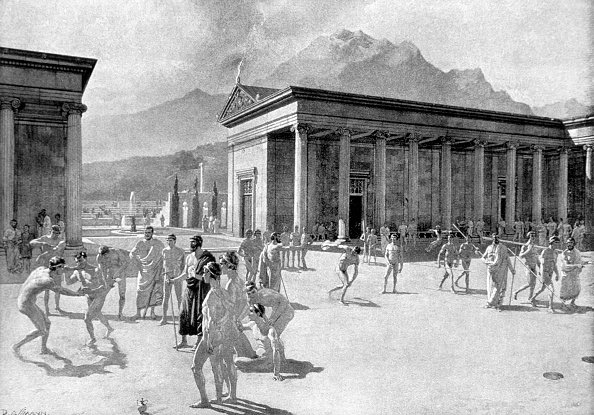
Greek Gymnasium at the Time of the First Olympic Games, Engraving, 776 BC | Source: Getty Images
1896: The Return of The Olympic Games
After 1500 years, the Olympic Games made a long-awaited return to Athens, Greece. The first modern Olympics took place between April 6-15, 1896. It was made up of 14 nations competing in 43 different events. American James Connolly won the first gold medal of the games while competing in the triple jump.
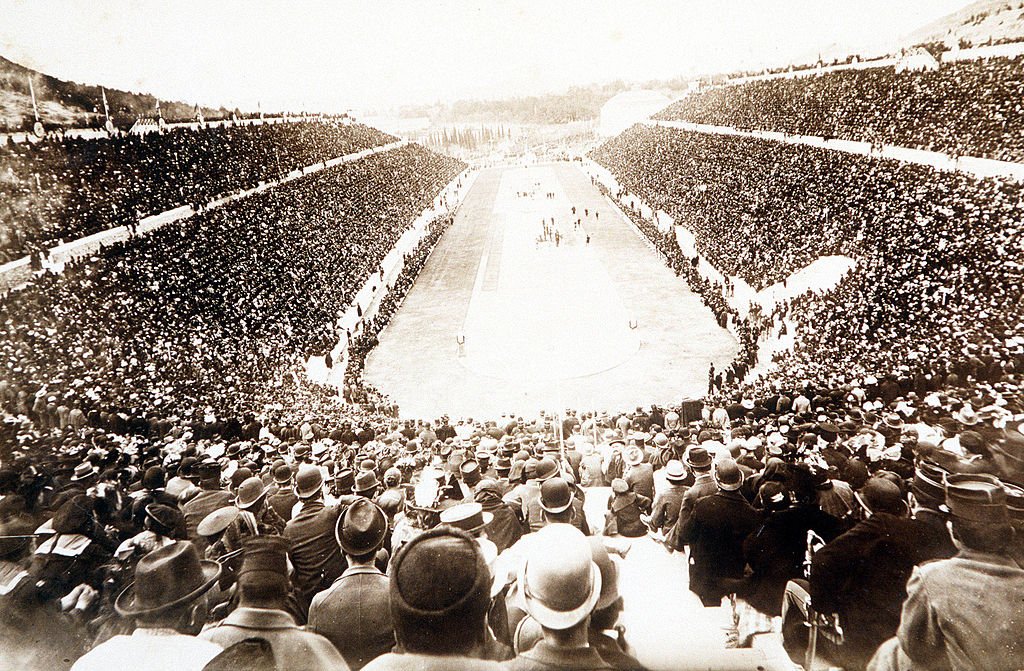
The first modern Olympic Games, held in Athens 1896 | Source: Getty Images
The youngest Olympian in the modern games was Greek gymnast Dimitrios Loundras, who competed at the 1896 Olympics aged just 10. Other young Olympians include springboard diver Marjorie Gestring who became the youngest woman to win an individual gold medal aged 13, while swimmer Kusuo Kitamura is the youngest man to win an individual gold medal.
The Origin Of The Olympic Rings
One of the founding fathers of the modern Olympic Games, Baron Pierre de Coubertin, invented the five Olympic rings. He chose the colors blue, green, yellow, black, red, and white in the background because every nation’s flag contains at least one of them.
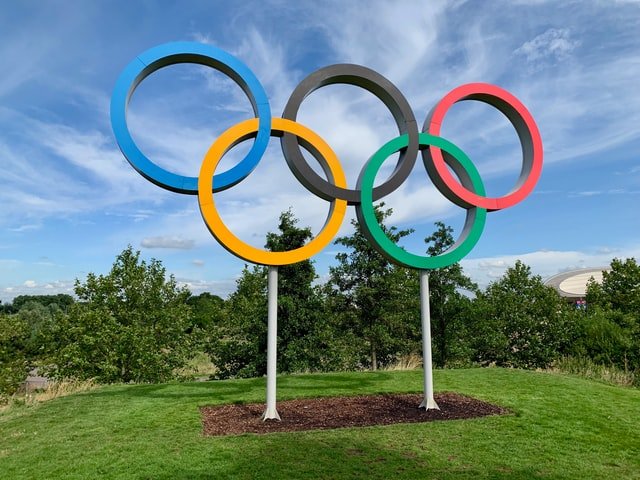
Olympic Rings | Source: Unsplash
The Story Of The Olympic Torch
The Olympic Torch is designed to burn throughout the entire tournament. But in the unlikely event that it doesn’t, organizers are only allowed to reignite it with a backup flame which has also been lit in Greece. They are never allowed to use any regular lighter.
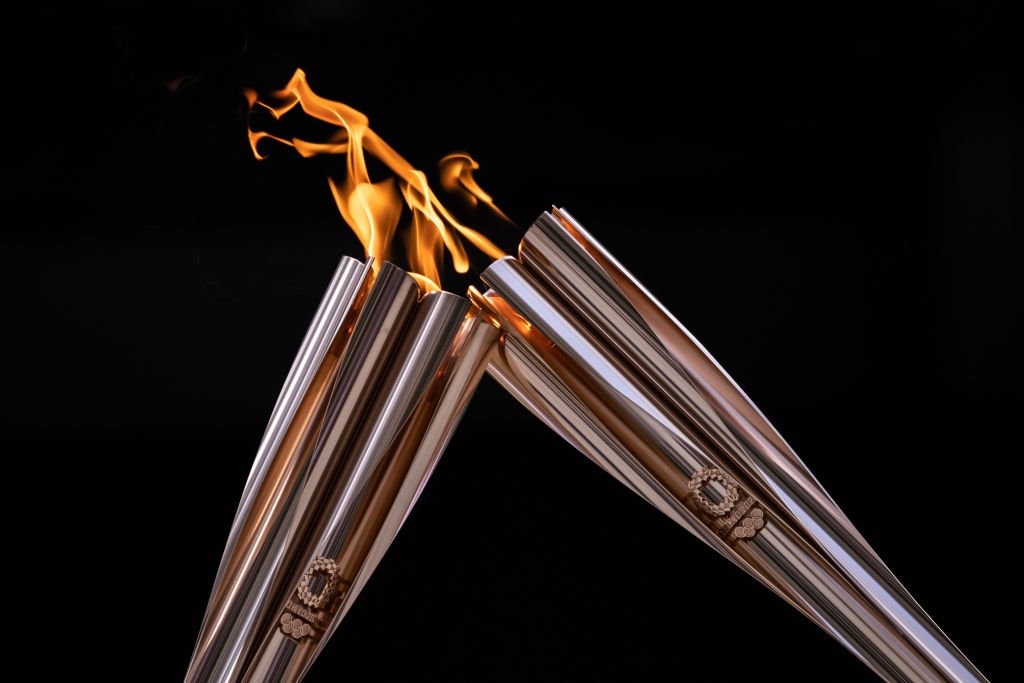
Flames are exchanged during the arrival ceremony for the Olympic torch on July 23, 2021 in Tokyo, Japan. | Source: Getty Images
1900: The Olympics Are Held In Paris
In 1900, the second modern Olympic Games were held in Paris, France. This was the first time women were allowed to compete in the games. The 1900 Olympics was also the first time rugby, golf, and cricket were included in the games. The Paris Olympics spanned more than five months.
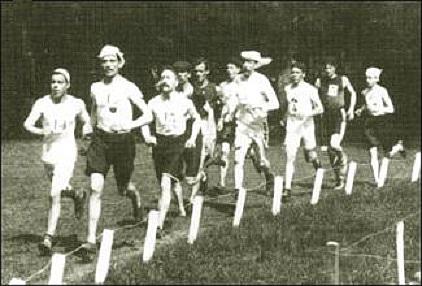
The early stages of the Marathon at the 1900 Paris Olympics | Source: Wikimedia Commons
1904: The First Disabled Athlete Competes For Olympic Gold
The 1904 Olympic Games in St Louis saw the first disabled athlete compete in the historic event. George Eyser competed and won gold in the parallel bar, long horse, and rope climbing events with a wooden leg. He also won silver medals in the side horse and all-around competitions and a bronze medal on the horizontal bar.
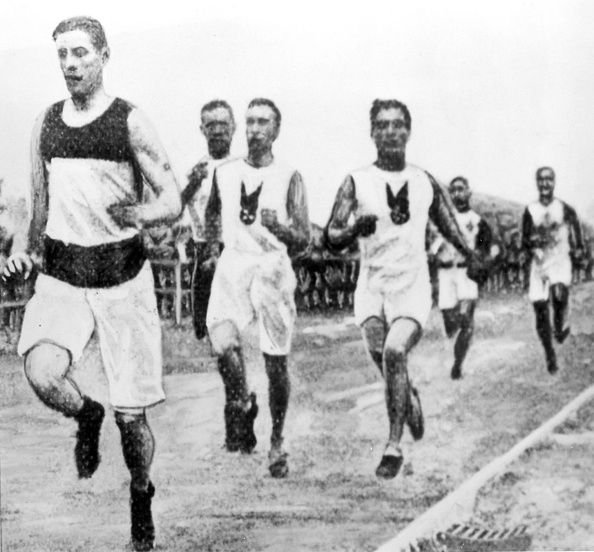
Image of the 1904 Olympic Marathon | Source: Getty Images
1908: Mount Vesuvius Derails Rome Olympics
The 1908 Olympic Games were originally meant to be hosted in Rome but were relocated to London after the city canceled after Mount Vesuvius erupted. The London Games hold the record for being the longest Olympics in history. Twenty-two countries competed against each other for six months.
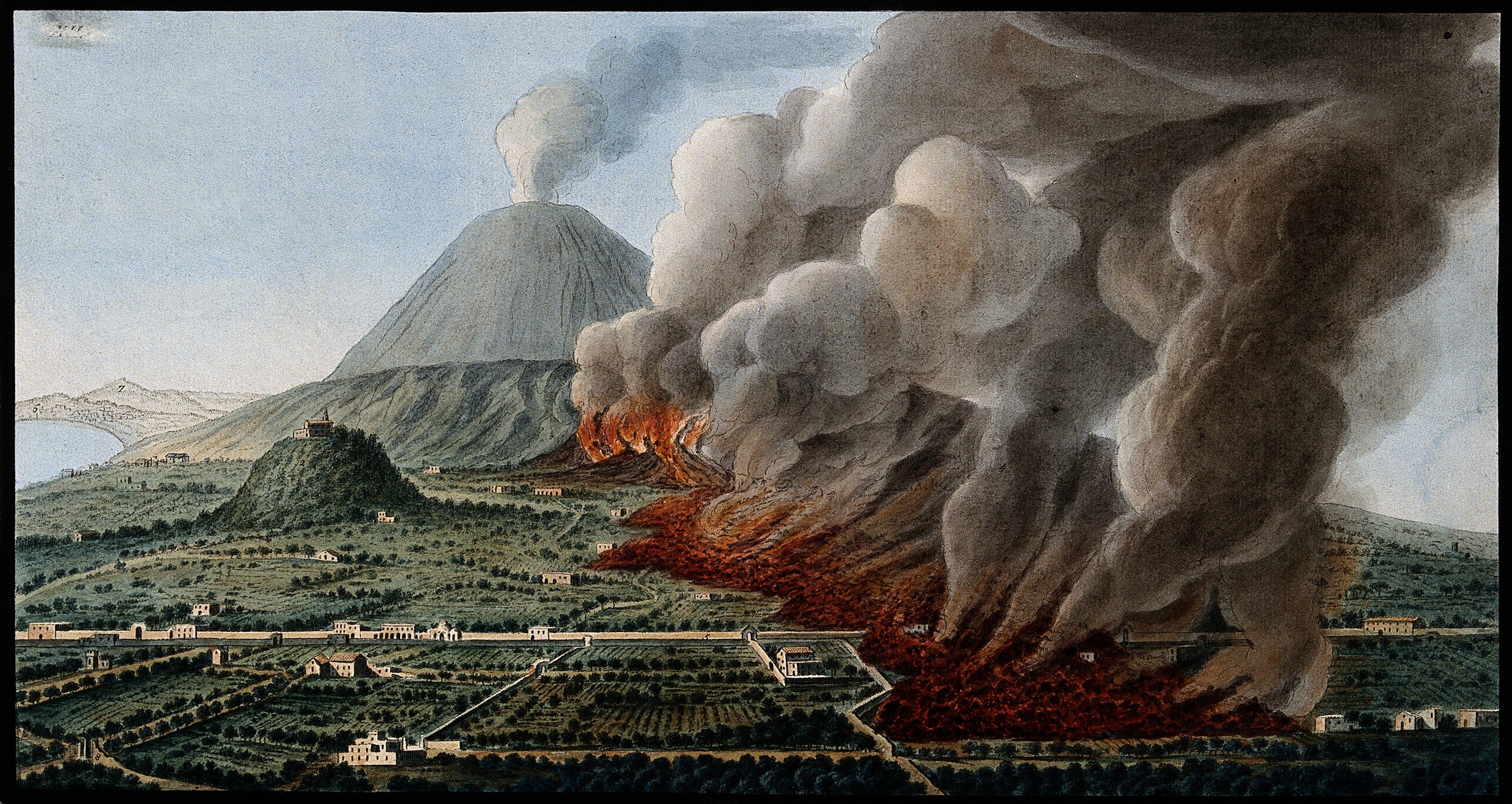
Mount Vesuvius: a volcanic eruption at the foot of the mountain | Source: Wikimedia Commons
The 1908 Olympics were also the first time hockey, indoor tennis, and motorboating were introduced as Olympic sports. However, controversy struck the games when people realized that the opening ceremony didn’t include the U.S flag in the Olympic stadium. As an act of retaliation, the American flag bearers refused to dip their flag to King Edward VII and ended up starting a new tradition.
1912: The Last Time Medals Are Made From Pure Gold
The last time Olympic Gold Medals were made of pure gold was in 1912. Organizers realized that making the medals for gold was too expensive to maintain, so they started making it from silver. Nowadays, Olympic Gold Medals are made up mostly of pure silver.
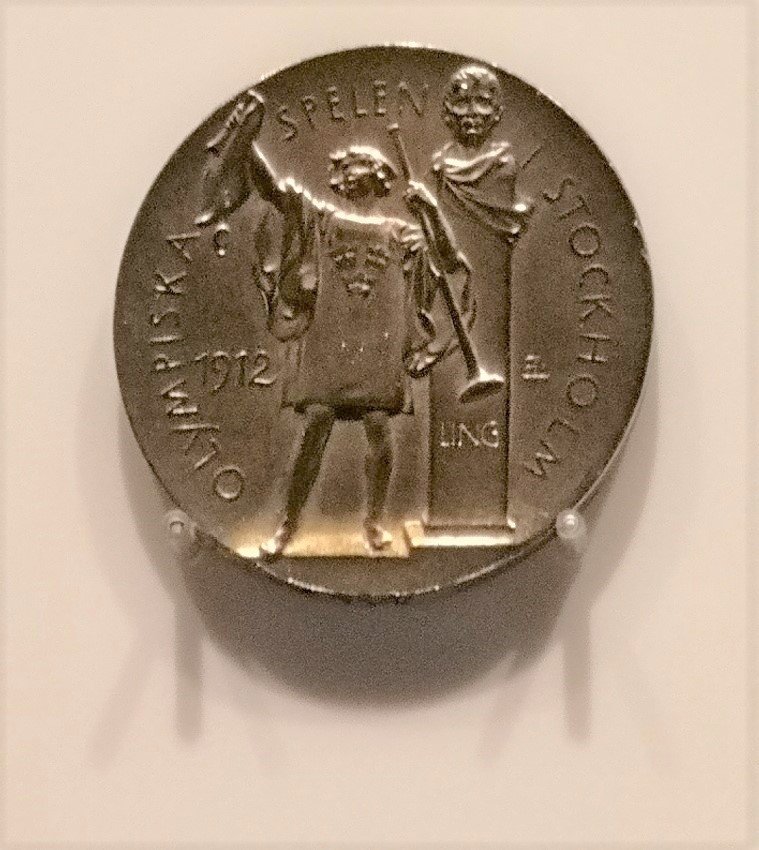
1912 Summer Olympics gold medal at the Olympic museum in Lausanne | Source: Wikimedia Commons
In 1912, it wasn’t just athletes competing in the games, but artists too. For almost 40 years, they competed for medals in painting, sculpture, architecture, literature, and music. France’s Baron Pierre de Coubertin was one of the founding fathers of the modern Olympics, and he was also the first person to win a gold medal for literature.
The first Asian Country Competes In The Olympics
The 1912 Olympics were held in Stockholm, and they welcomed Japan as the first Asian country to participate in the games. The 1912 Stockholm Games saw the first use of an electronic timer, but they were also the first time an athlete passed away during the tournament. He was Portuguese runner Francisco Lazzaro, and he died during the marathon.
1916: The Olympics Are Cancelled For the First Time
Only three Olympic Games have ever been canceled in history. The 1916 games in Berlin were canceled because of World War I, while the 1940 and 1944 games were canceled because of World War II. The 2020 Tokyo Olympics were almost canceled, but the committee decided to postpone them instead.
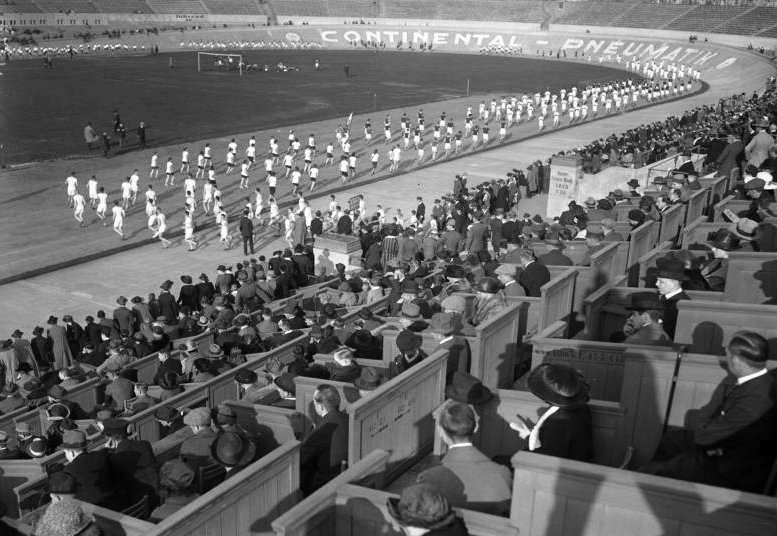
Berlin Olympic Stadium | Source: Wikimedia Commons
1920: Eddie Eagan Makes History
Only five people in history have ever won Olympic medals during both the summer and the winter games. And one of them is Eddie Eagan, who won the gold medal in the 1920 summer Olympics, and the 1932 winter Olympics the team bobsled event.
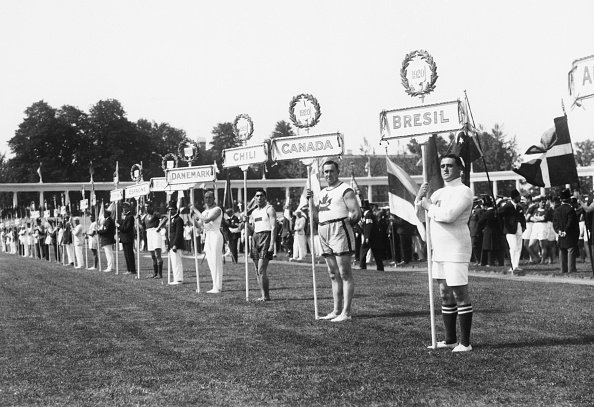
Scene at the Olympic Games at Antwerp, Belgium - Line up of teams of various countries at opening ceremony. | Source: Getty Images
The rest are Norwegian Jacob Tullin Thams, German Christa Luding-Rothenburger, Canadian Clara Hughes, and American Lauryn Williams.
1920: The First athlete To Have Won Olympic Gold Representing Two Different Nations
Only two Olympic athletes have ever won gold medals while competing for two different countries. Daniel Carroll won gold in the Rugby tournament for Australia before doing it again for the United States in 1920.
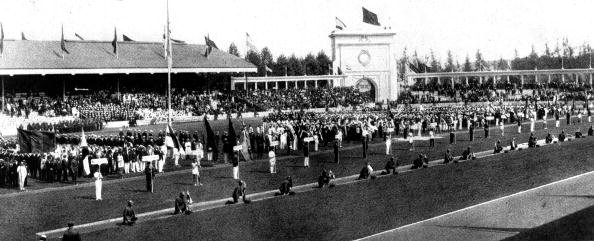
1920 Olympic Games. Antwerp, Belgium. Teams parade at the Opening Ceremony. | Source: Getty Images
The second is Kakhi Kakhiashvili, who won his first gold medal representing the Unified Team in the 1992 Barcelona Games and later representing Greece in the 1996 and 2000 Olympic Games.
1936: The Infamous Berlin Games
The tradition of the Olympic Torch Relay began in the infamous 1936 Berlin Olympics. The chief organizer of the games, Carl Diem, came up with the idea as a way to push Nazi propaganda. The torch was lit in Greece then would go through Bulgaria, Yugoslavia, Hungary, Austria, and Czechoslovakia. The same countries that eventually ended up under Nazi rule.
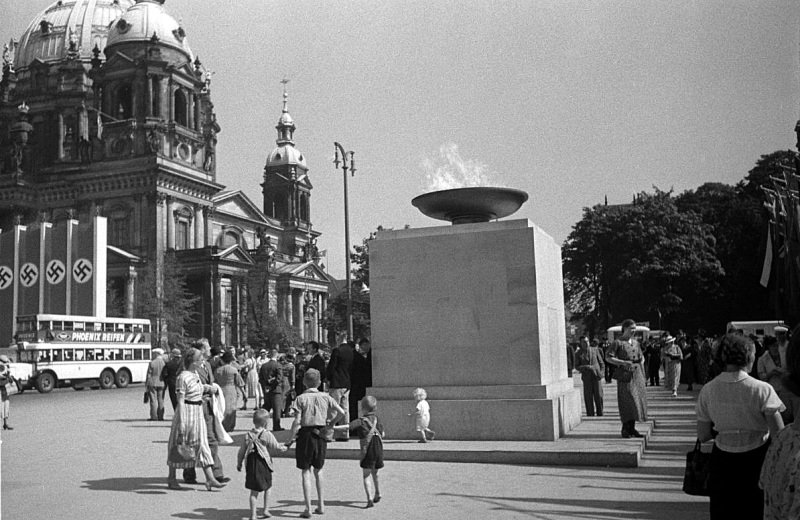
Olympic Fire in Berlin 1936 | Source: Wikimedia Commons
During the 1936 Berlin Games, something unexpected happened when two Japanese pole-vaulters were tired of second place. Instead of them competing again to find a clear winner, the committee cut the silver and bronze medals in half and joined them together so that each athlete can have a half-silver half-bronze Olympic medal.
1936: The Historic Basketball Final Game
Basketball made its debut in the Olympic Games during the 1936 Olympic Games. The matches were played outdoors in the clay tennis courts. And during the gold medal game between the U.S and Canada, severe rain turned the court into a muddy affair. Players could barely handle the ball, and the spectacle turned into a long game of catch. Nevertheless, the U.S won that game with a final score of 19 to 8.
1948: The Olympics Return After 12 Years
World War II forced the Olympics into a 12-year break, and they only returned to London in 1948. The games involved 59 countries which didn’t include Japan, Germany, and the USSR. Japan and Germany were banned because of their actions during the war, while the USSR declined the invitation to attend.
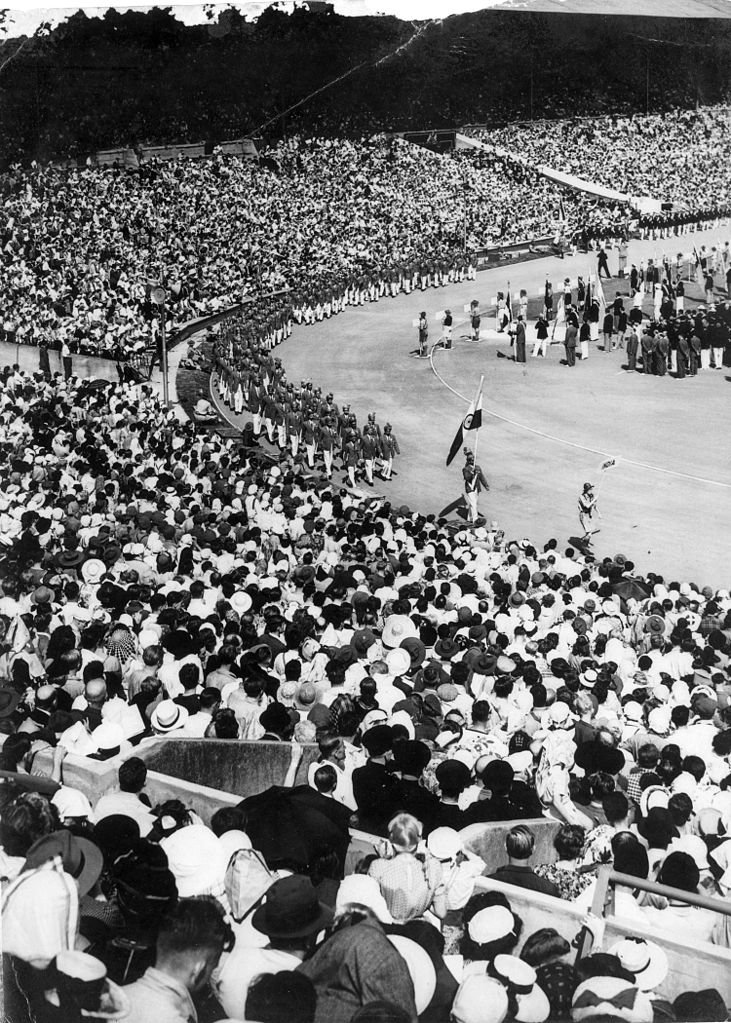
India at the Olympic Games 1948 London | Source: Wikimedia Commons
1960: The First Olympic Anthem Makes Its Debut
The 1960 Olympic Games were hosted in Rome and saw the debut of the first Olympic Anthem. Rome welcomed around 5,300 athletes from 83 different nations. And one of them, Ethiopia’s Abebe Bikila, became the first Black African to win a gold medal when he finished first in the marathon.
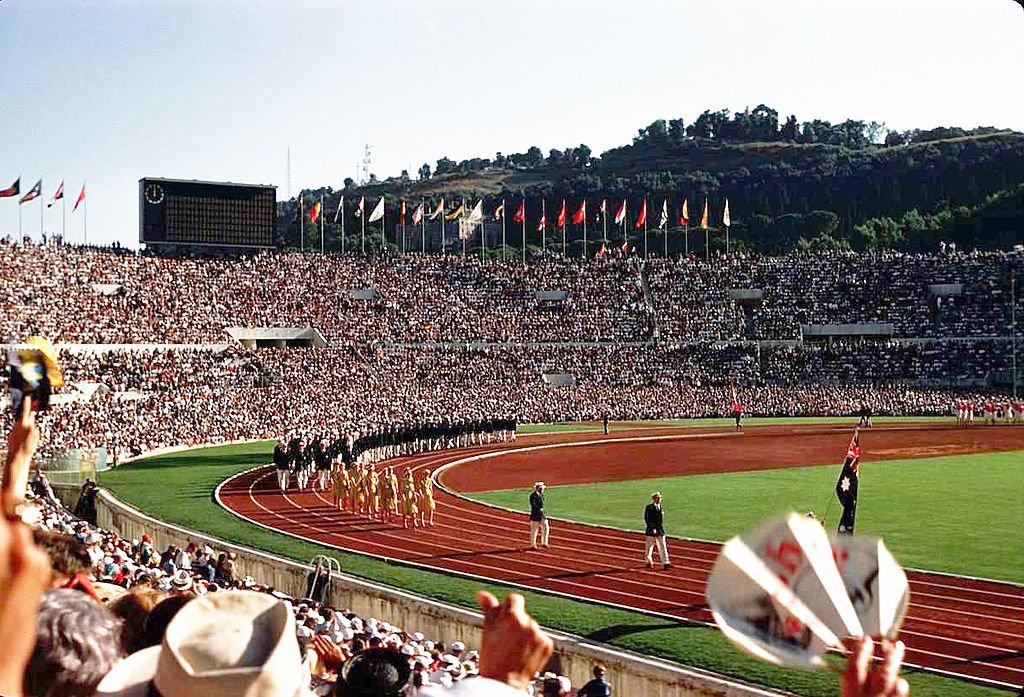
Opening day at the 1960 Summer Olympics in Rome | Source: Wikimedia Commons
The 1960 Games also welcomed a man named Cassius Clay, better known as Muhammad Ali, to the world stage. He won his first gold medal in the light heavyweight division. He then decided to turn professional that year and went on to become the greatest boxer of all time.
1964: The Olympic Games Are Held In Asia For The First Time
In 1964, the Olympic Games were held in Asia for the first time. Emperor Hirohito welcomed athletes from all over the world to the city of Tokyo. This was the first time a handheld stopwatch was used and the first time men’s Judo was introduced as an Olympic event.
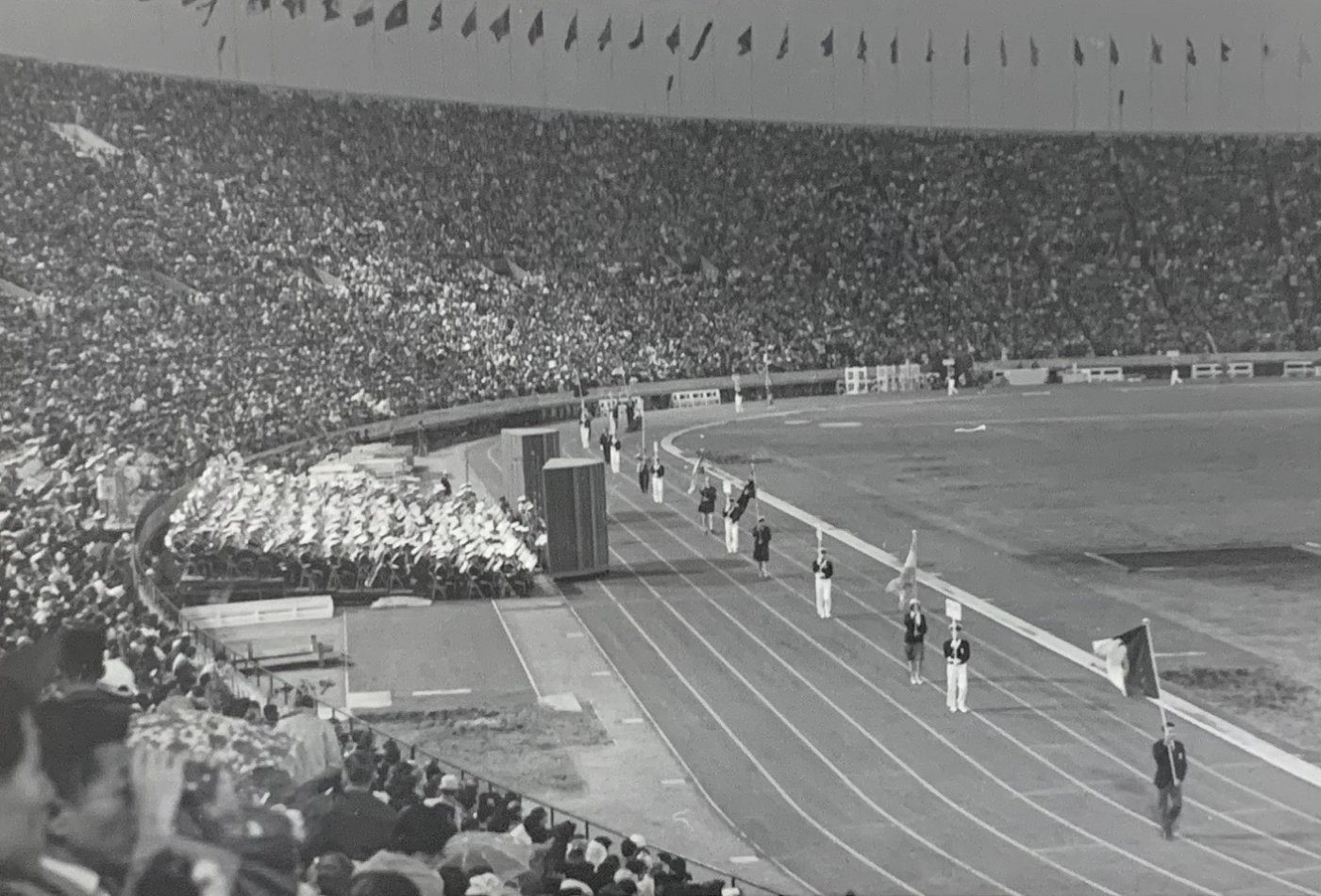
Tokyo Olympic Closing Ceremony 1964 | Source: Wikimedia Commons
During the games, Soviet gymnast Larisa Latynina won six medals which gave her a then-record 18 Olympic medals. Only Michael Phelps has won more.
1980 & 1984: The Cold War Heats Up
During the 1980 Olympic Games in Moscow, almost 80 countries boycotted the event because of a protest led by the U.S Government. President Jimmy Carter threatened all American athletes by saying that anyone who participated in the games would forfeit their passports.
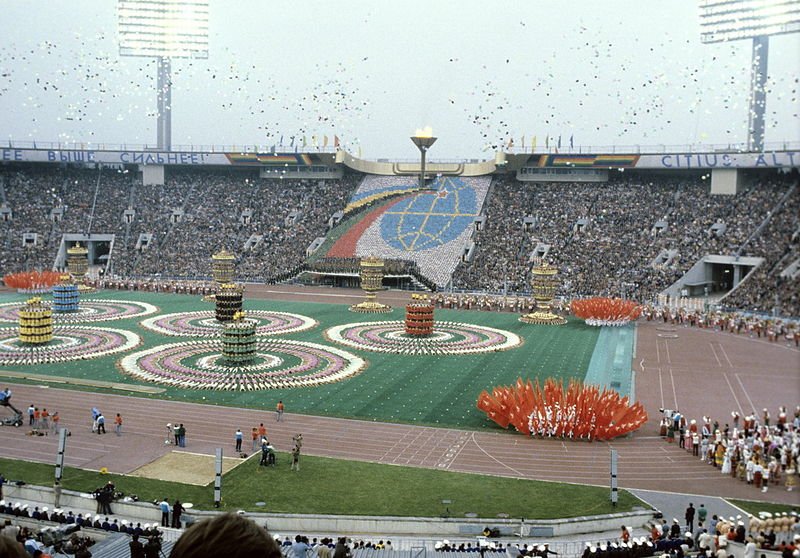
Opening ceremony of the 1980 Olympic Games | Source: Wikimedia Commons
Four years later, the Soviets retaliated and boycotted the 1984 Olympic Games in Los Angeles. However, their boycott was unsuccessful, and it saw a then-record 140 countries participating in the games.
1988: Another Boycott
The 1988 Seoul Olympics saw another boycott led by North Korea, Cuba, Ethiopia, and Nicaragua. However, 159 countries still competed in the games, including American Olympic legends Greg Louganis, Matt Bioni, Florence Griffith Joyner, and Jackie Joyner-Kersee.
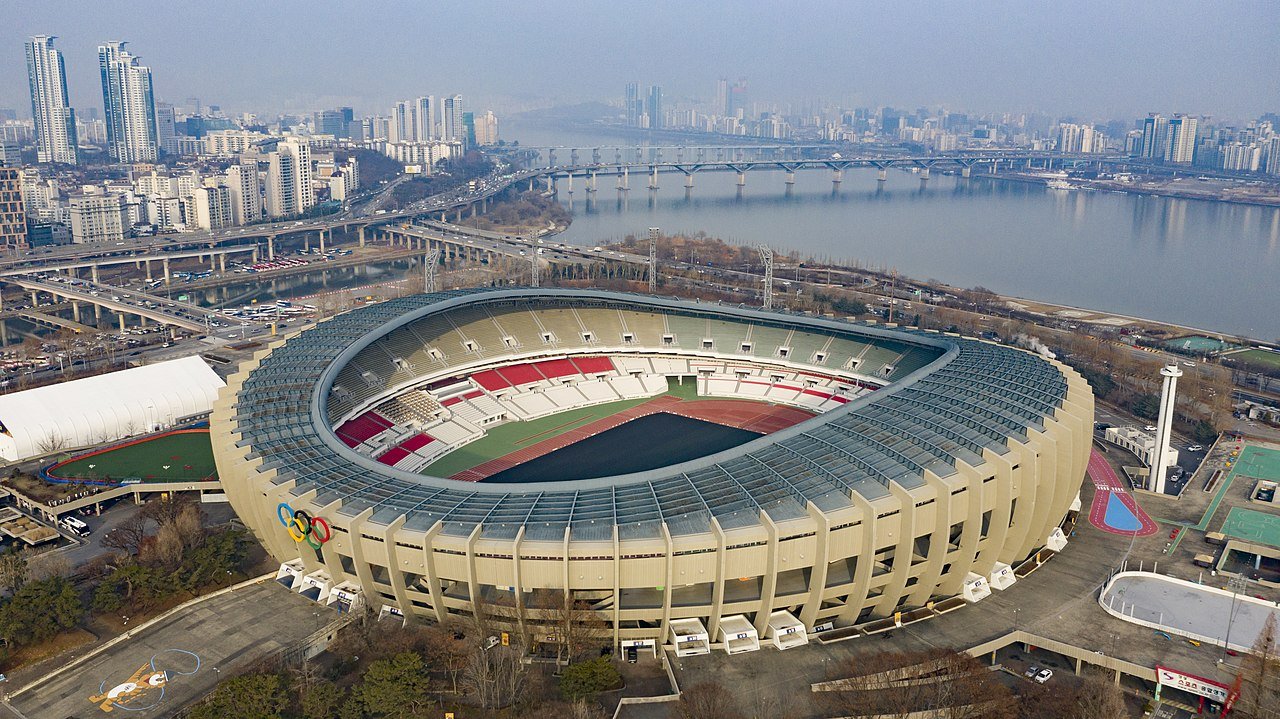
Aerial view of Olympic Stadium Seoul, South Korea | Source: Wikimedia Commons
2000: North and South Korea Compete As One
At the turn of the century, the city of Sidney welcomed over 10000 athletes from 199 nations at the 2000 Olympic Games. This was the first time North and South Korea competed under a unified flag. The Games included taekwondo, triathlon and women were finally allowed to compete in the weightlifting competitions.
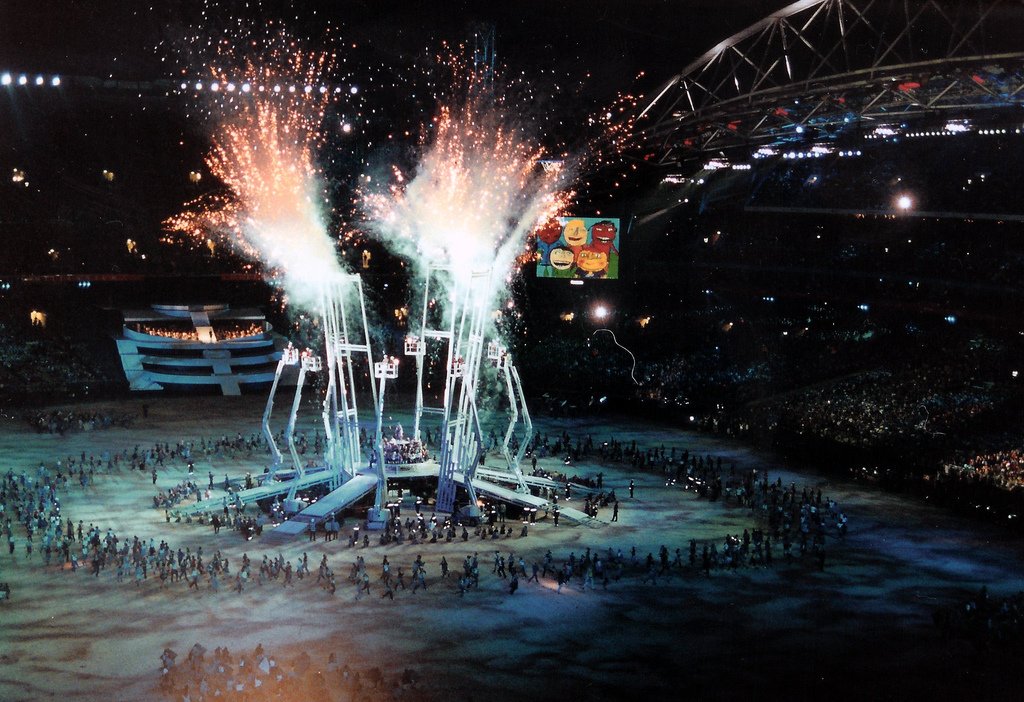
Sydney Olympics Opening Ceremony | Source: Wikimedia Commons
2004: The Olympic Games Return To Athens
In 2004, the Olympics returned to their original birthplace, Athens, and they included a record number of teams (201). More events were added to the games, including women’s wrestling. But the highlight of the Games was none other than American Swimmer Michael Phelps, who set an Olympic record after collecting a total of eight individual medals, six of which were gold.
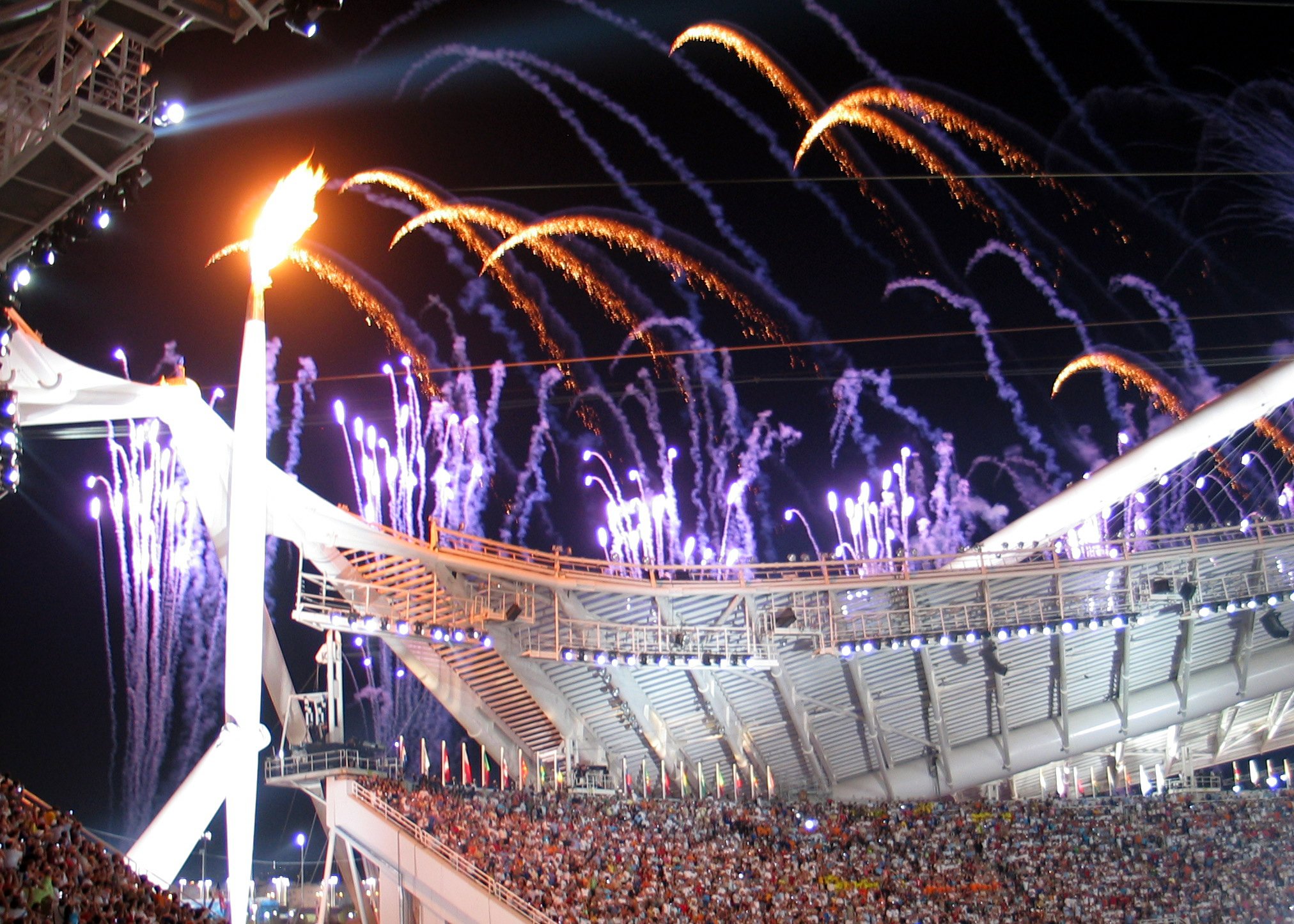
Olympic flame at 2004 opening ceremony in Athens. Greece | Source: Wikimedia Commons
2008: A Historic Opening Ceremony
In 2008, the Olympic Games were held in Beijing, China. The organizers produced one of the most memorable opening ceremonies in history that cost a reported $100 Million. It also consisted of 15,000 performances and state-of-the-art special effects.
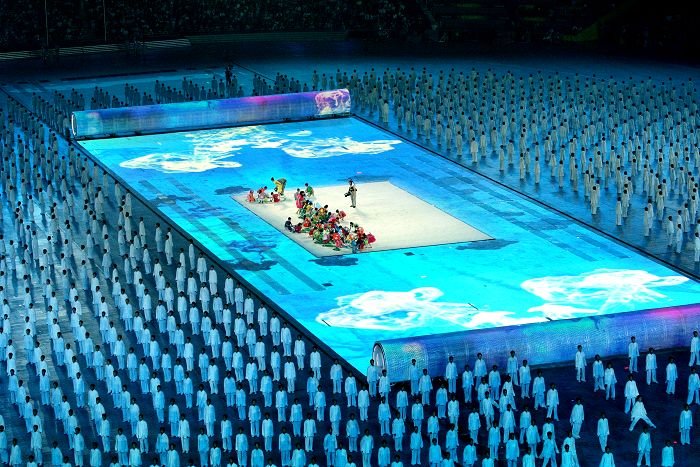
2008 Summer Olympics opening ceremony | Source: Wikimedia Commons
During the Beijing Games, over 130 Olympic records were broken along with 40 other world records. The Games also saw a historic 204 teams competing together. The standout athletes of the 2008 Olympics were Jamaican legend Usain Bolt and American swimmer Michael Phelps who added another eight gold medals to his historical record.
2012: The London Olympics
2012 was the third time the city of London hosted the Olympic Games in its history. During these games, Saudi Arabia allowed women to compete for the first time. The games also included women’s boxing and tennis for the first time while removing baseball and softball events.
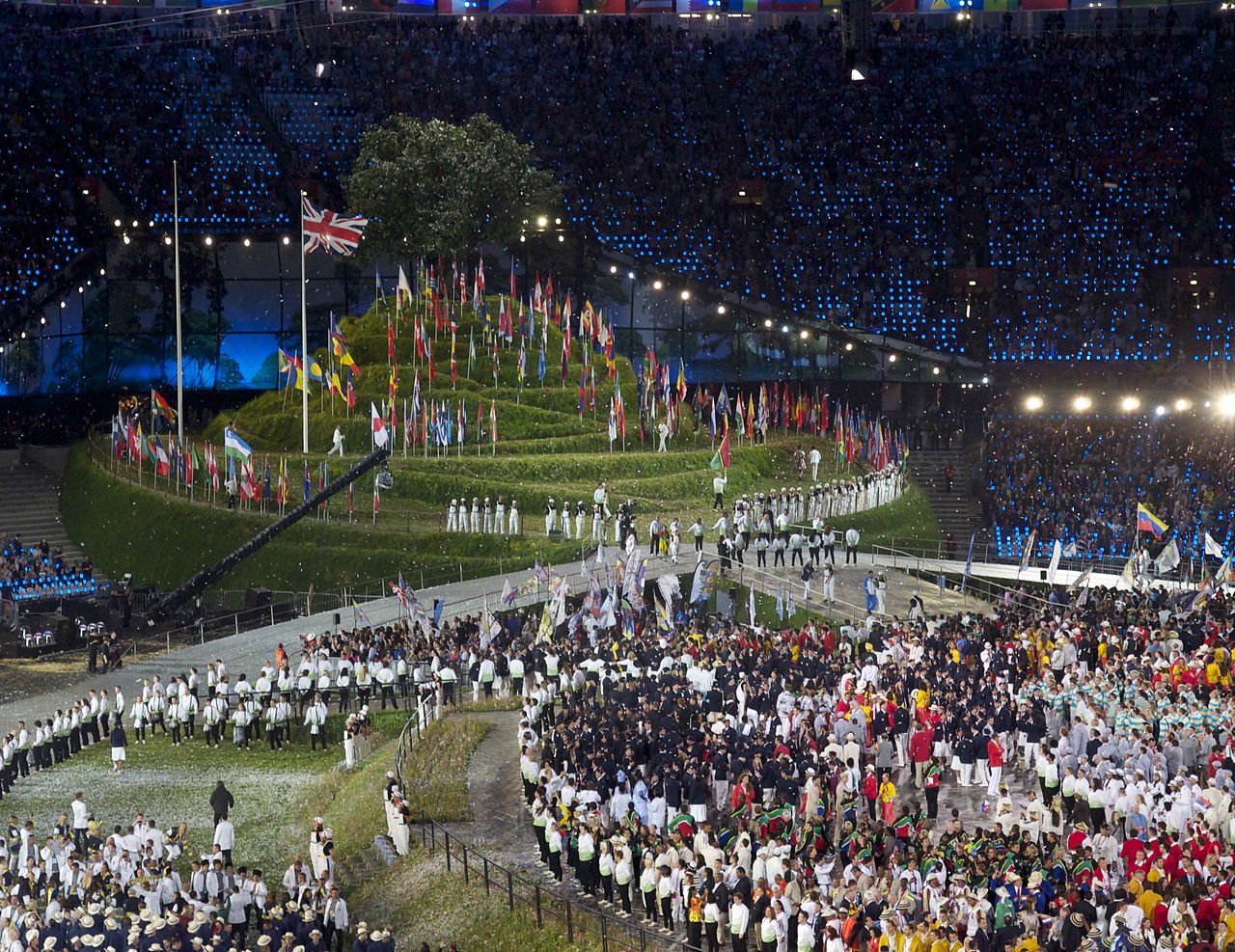
2012 Summer Olympics opening ceremony | Source: Wikimedia Commons
The 2012 Olympics also saw South African Oscar Pistorius make history for becoming the first double amputee to compete in the games. Pistorius made his Olympic debut 108 years after George Eyser but lost in the 400-meter race.
2016: The First Olympics Held In South America
Brazil hosted the 2016 Olympics in Rio. However, a break out of the Zika virus almost hampered plans to hold a successful tournament. The U.S dominated the games once again after only three of their athletes took home 14 medals between them.
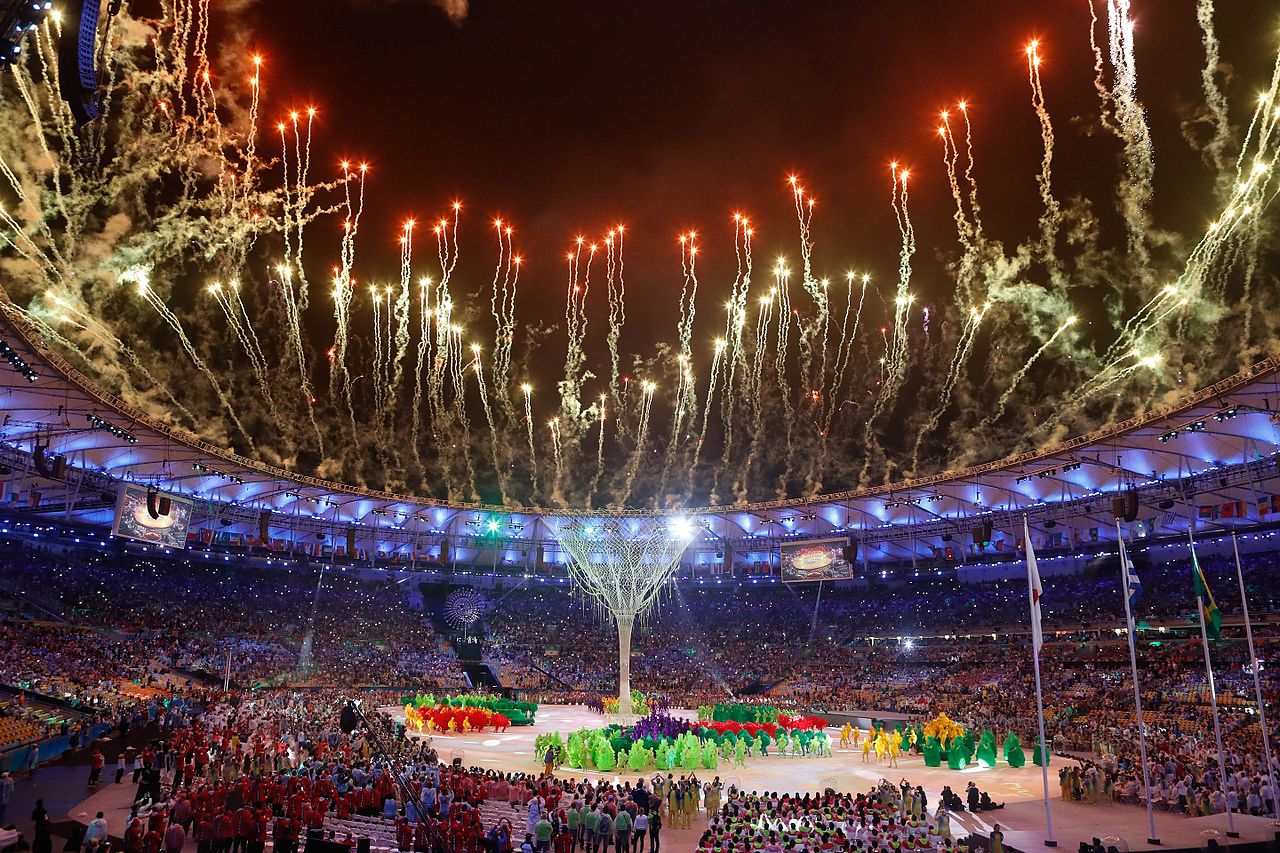
2016 Rio Olympics opening ceremony | Source: Wikimedia Commons
Simone Biles won four gold medals, Michael Phelps won five, and Katie Ledecky won four along with a silver medal. The games also marked the end of an era for legendary Jamaican sprinter Usain Bolt who finished the games with three gold medals to his name.
2021: The Tokyo Games Finally Take Place
The outbreak of the coronavirus in 2020 almost forced the Olympic committee to cancel the Tokyo Games, which were supposed to take place between July and August that year. However, they decided to push them back a year, and they recently began on July 23, 2021. Despite the date change, the games will still keep their Tokyo 2020 tag.
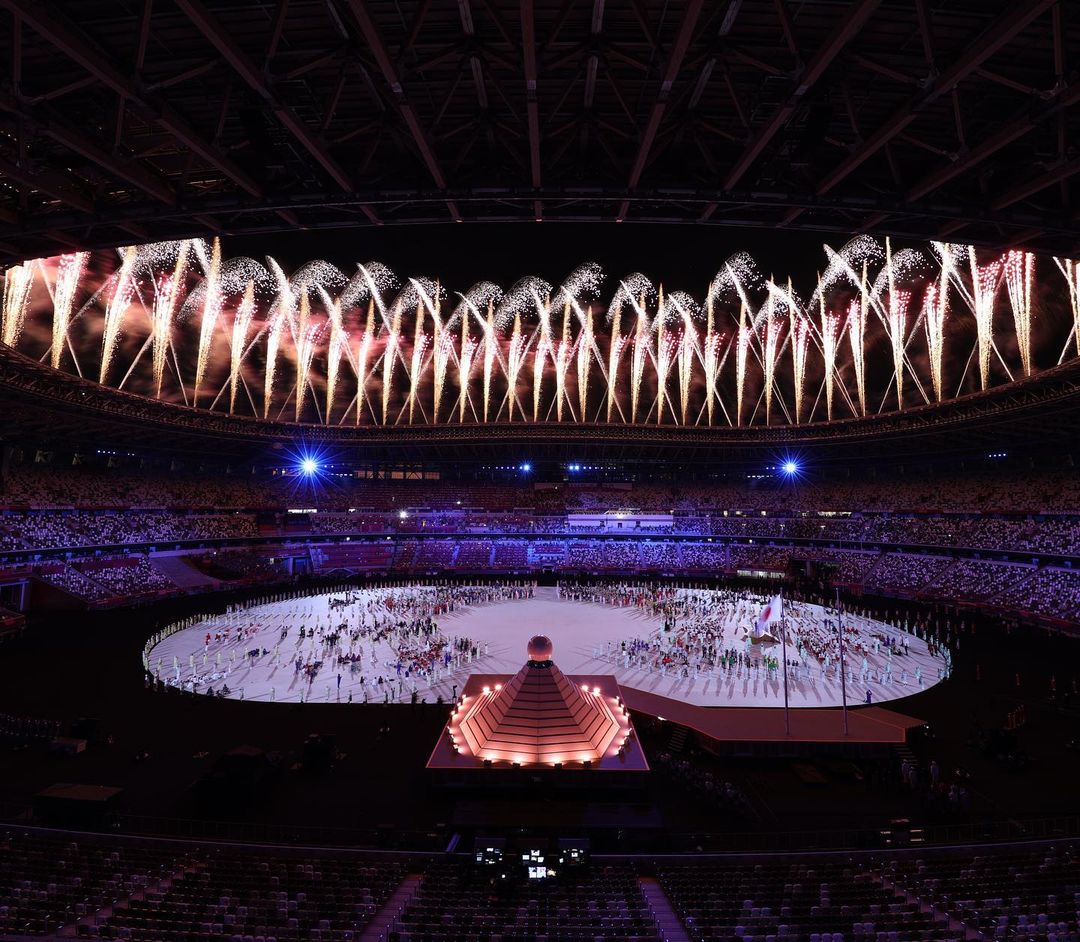
Tokyo 2020 Olympics opening ceremony | Source: Instagram
Now that the Tokyo 2020 Olympic Games have finally begun, the world waits to see a new generation of Olympic champions take the games to the next level.